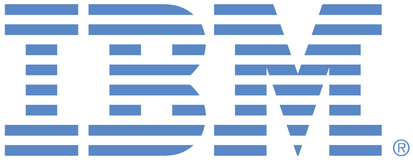
This portal is to open public enhancement requests against products and services offered by the IBM Data Platform organization. To view all of your ideas submitted to IBM, create and manage groups of Ideas, or create an idea explicitly set to be either visible by all (public) or visible only to you and IBM (private), use the IBM Unified Ideas Portal (https://ideas.ibm.com).
Shape the future of IBM!
We invite you to shape the future of IBM, including product roadmaps, by submitting ideas that matter to you the most. Here's how it works:
Search existing ideas
Start by searching and reviewing ideas and requests to enhance a product or service. Take a look at ideas others have posted, and add a comment, vote, or subscribe to updates on them if they matter to you. If you can't find what you are looking for,
Post your ideas
Post ideas and requests to enhance a product or service. Take a look at ideas others have posted and upvote them if they matter to you,
Post an idea
Upvote ideas that matter most to you
Get feedback from the IBM team to refine your idea
Specific links you will want to bookmark for future use
Welcome to the IBM Ideas Portal (https://www.ibm.com/ideas) - Use this site to find out additional information and details about the IBM Ideas process and statuses.
IBM Unified Ideas Portal (https://ideas.ibm.com) - Use this site to view all of your ideas, create new ideas for any IBM product, or search for ideas across all of IBM.
ideasibm@us.ibm.com - Use this email to suggest enhancements to the Ideas process or request help from IBM for submitting your Ideas.
IBM Employees should enter Ideas at https://ideas.ibm.com

Thank you for this idea and these comments. This is helpful feedback.
The end consumer of a data module is a business author.
The trusted badge needs to be at an object level, not at the DM level.
As a business author I would like to know the heritage of the objects within a data module I am using. Then if someone shares a DM with me, i know which bits are 'central objects', and which bits have been added by other users.
It feels more like you need different badges for different objects within the module.
Then as a business author i could say "only show me objects with the central IT badge", "show me objects from central IT and my team".
The idea of not breaking links is good - but this requires a lot more things to be links! As joins, standalone calcs, nav paths (to name a few) arent links, then just having a trusted table isnt of value. If its a star schema i need to be able to trust the fact table, any dimensions, and the join! currently only the tables are links.
On the bigger picture, the whole reusing bits of a data module in other data modules isn't really a good scalable solution though. The idea floated here is data modules managed by central IT teams. These data modules are typically going to be large complex for data warehouses. Why would a user want to bring bits of this large DM this into their own data module? Who is likely to have the biggest, most complicated DM, the central IT team, or the end user?
What is the end user wanting to do, add a new calc? add a new bit of data - maybe an excel file?
So the end user has to create a new DM, bring in all this stuff from the main IT held corporate DM, then add a new calc. And then repoint any reports, dashboards they may already have to their new DM to use that calc!
Now imagine the central IT team has updated the central DM, maybe added some new calcs, some new tables, dimensions etc and the business user want to use those too. They have to open up their DM, bring in all the new stuff and then they can use it. And they are forever stuck in this pattern.